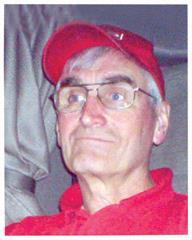
As I plod on into my twilight years, I sometimes think I've seen most things transport-related in the quiet moments. Trucks have gone from basic draughty wooden framed cabs with no power steering to the all-singing, all-dancing, almost drive themselves homes on wheels of today.
Unlike today's driver shortage, jobs were plentiful in the early days. As you gained experience, you could move on to better companies with better trucks. Strikes were more common back then until Prime Minister Margaret Thatcher put an end to the trade unions' stranglehold on the country. She was never my favourite politician, but she certainly got the job done.
As well as local strikes, there were a few national drivers and miners strikes too, actions called for and organized by the relevant unions usually to get higher wages from the company.
I remember when the miner's union called a national strike, it was a time when most power stations were coal-fired. Coal boats with imported coal came into a quay near Hunterston on the Firth of Clyde, where there were two power stations. It would've been a great show of unity if the truckers had supported the miners, even though they were members of different unions. Most of them did, but a company called Yuill and Dodds, a smallish outfit of about 50 trucks, came in to run the coal from Hunterston to the Ravenscraig steel mill in Motherwell to keep production going. They were probably paying the drivers a premium rate.
They were given a police escort for some of the route, and as time went on, the drivers thought they were invincible. On the parts of the route without the police escort, the truck drivers seemed to think they were above the law, speed limits were ignored, and other road users, especially car drivers, were looked on as obstructions to be dealt with. Some drivers who didn't get out of the way fast enough were surrounded by four trucks. Back then, most drivers had a CB in the cab, and while the Yuill and Dodds drivers used them to organize those four truck blockades, they also received a lot of abuse from other drivers on air. Comments like, your fathers must be turning in their graves, and, I hope you're proud of yourselves, you scabs. I've never been a big fan of trade unions, although I'd have to join the union if I got a job in a union shop. I could never see the reasoning behind the strikes that were called for crazy things, just to show the union's power. Like a guy on the night shift working for Rootes making the Hillman Imp cars, who got caught sleeping on the job, he was sacked, as you would expect. Oh no, the union couldn't have that and called a strike, so all the guys who were able to stay awake and do their job lost wages while out on strike.
So, with my experience of every man for himself, whether unionized or not, I never imagined I would see, in my lifetime, such a united front from Canadian truck drivers. Not to mention farmers and other people who came together in the massive trucker's freedom convoy to Ottawa. What made a great impression on me was that a lot of these drivers were owner-operators, drivers who, if they aren't working, don't make money. So the vast amount of money donated to their cause was equally impressive. Thanks to the power of the internet and, of course, the news on TV, I could sit at home in bonnie Scotland, watching the spectacle unfold as people brought food and support to the trucks in the middle of the city.